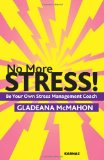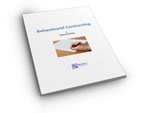 When you type the word ‘Stress’ into Google you get 123,000,000 hits; when you refine the search to newspaper articles you get 537,000. Open the newspapers, listen to the radio, or watch the television, and the theme of Stress is mentioned almost daily.
When you type the word ‘Stress’ into Google you get 123,000,000 hits; when you refine the search to newspaper articles you get 537,000. Open the newspapers, listen to the radio, or watch the television, and the theme of Stress is mentioned almost daily.
Successful law suits are brought against employers who have not looked after the emotional and psychological welfare of individuals and the Health and Safety Executive now provide guidelines and training for employers on the recognition and prevention of Stress. Mental health problems such as Anxiety and Depression are now recognized as by-products of Stress.
I have for the last 34 years worked in the area of Psychology, Counselling and for the past 19 years have included Coaching into my offerings. My passion is about helping people be the best they can be and in passing on my knowledge to mental health professionals. I have been lucky to have worked with a wide range of individuals and with a variety of emotional and psychological conditions.
Having worked in the area of Stress Counselling, Stress Coaching and also as Co-Director of the Centre for Stress Management my experience based on the many thousands of hours spent with individuals experiencing Stress made me want to share my knowledge and it was this that led me to write “No More Stress – be your own Stress Management Coach”. During my career I have worked with everyone from housewives, stressed social workers and managers to celebrities and politicians as well as senior business people. One thing I have learned is that neither status nor money provides immunity from Stress or its effects.
No More Stress!: Be Your Own Stress Management Coach I wanted to write a book based on well researched psychological principles that would provide a way that individuals could not only deal with Stress but also by using the strategies outlined in the book actually prevent becoming stressed in the first place. Prevention as they say is better than cure and what is important is that while my book is based on academic research it is presented in a down to earth communication style.
I have always been an advocate of what could be called ‘popular psychology’. This to me means assisting individuals take greater control over what troubles them. As an individual I can only reach a certain limited number of people in a week. However, a book can reach so many people more individuals. It’s probably why I have written so many books since my first in 1994. I have also written many chapters and articles for professional journals as well as for the more popular press such as newspapers and women’s magazines.
Although ‘No More Stress’ could be seen as being aimed at individuals it will also help psychologists, coaches and counsellors. The exercises, strategies and techniques used throughout the book are likely to help health care professionals find additional ways of working with the individuals they meet. Having run training programmes on everything from stress awareness to stress management and having trained psychologists, counsellors and coaches, the feedback that I have received has been that they have found a number of the strategies shared in this book have added value to their work with clients.
There are now many studies supporting the view that the best treatment for Stress is Cognitive Behavioural Therapy (CBT).
In more recent years, many of the skills associated with CBT have been brought into the realm of coaching under what is now called Cognitive Behavioural Coaching (CBC), pioneered by individuals such as Professors Stephen Palmer and Windy Dryden, as well as by Michael Neenan and myself.
Depending on the severity and individual circumstances faced by individuals either CBT or CBC are able to help them take control of what often seems like insurmountable problems.
Cognitive Behavioural approaches work in a holistic manner, by examining situations, thoughts, emotions, physical feelings and actions. By considering how we think about ourselves, the world and other people and exploring what we do and how this affects our thoughts and feelings individuals learn what fuels their Stress, what triggers it and what strategies they need to deal with it. CBT is what is called an ‘evidence based’ therapy in that since its inception in the late 1950s CBT has been one of the only therapies to insist on opening itself up to studies to determine which skills and ways of working are best when attempting to help people change. Some of the strategies are as simple as learning to breathe properly, distracting oneself from a negative train of thought and counting to ten, while others are far more complex and explore the belief systems of the individual to unearth the core of that individual’s self-defeating thinking and subsequent behaviour.
Stress related problems need no longer spoil people’s lives. Providing an individual is prepared to do the work and follow the strategies Stress can be overcome.







